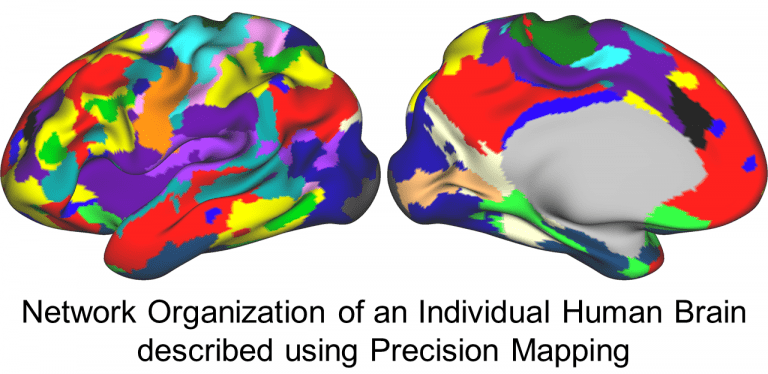
Evan Gordon, PhD
Assistant Professor, WashU Radiology
- Phone: 314-362-8875
- Email: egordon@nospam.wustl.edu
Understanding organization of networks within individual human brains and how that organization is disrupted by TBI
One of the most important things we’ve learned about the human brain over the last few decades of human neuroscience research is that everyone’s brain is similar overall, but different in the details. For example, we know that there are large networks present in the brain that allow physically distant brain regions to cooperate, enabling complex cognition. Our lab has developed techniques that use functional magnetic resonance imaging (fMRI) scans to noninvasively map these brain networks in individual people with unprecedented fidelity. We call these techniques Precision Mapping.

The Precision Mapping approach is ideal for helping us understand Traumatic Brain Injury (TBI). TBIs are extremely common, yet at the same time they are the neurological condition with the greatest variability across patients. TBIs cause a wide variety of different symptoms in different patients, from headaches to light sensitivity; from difficulty concentrating to memory problems; from emotional lability to sleep disruption to motor dysfunction. These symptoms can range from mildly disruptive to completely disabling; they can resolve within a few weeks, or persist for years. Currently, we have a relatively poor understanding of how certain injuries induce the symptoms they do, or why they resolve when they do. As a result, our prognoses for TBI patients are vague and inaccurate.
By contrast, Precision Mapping allows us to characterize TBI-related brain dysfunction very precisely in each individual. This allows us to much better understand the relationship between individual-specific brain injuries and the symptoms they cause. It also allows us to track how symptom recovery is related to post-injury recovery of brain function. In short, Precision Mapping allows us to understand TBIs at an unprecedented level of detail within each individual patient. This has to potential to revolutionize our understanding of brain injury and recovery, to improve prognostic power for patients, and to develop individualized treatments targeted to each patient’s specific injury.
More about the Gordon Precision Neuroimaging Lab